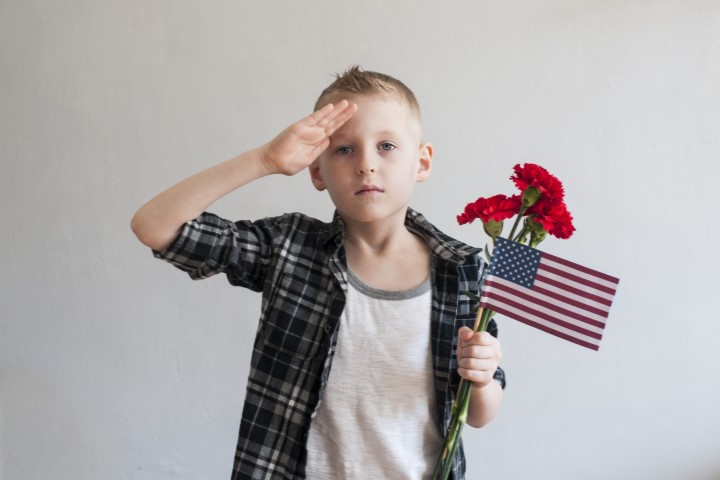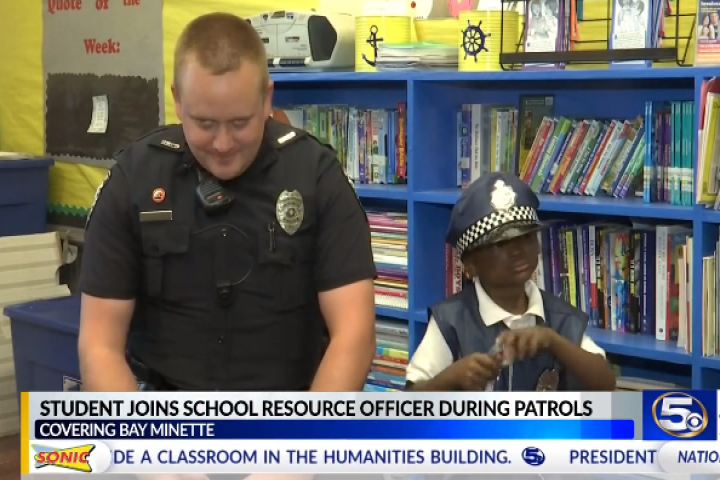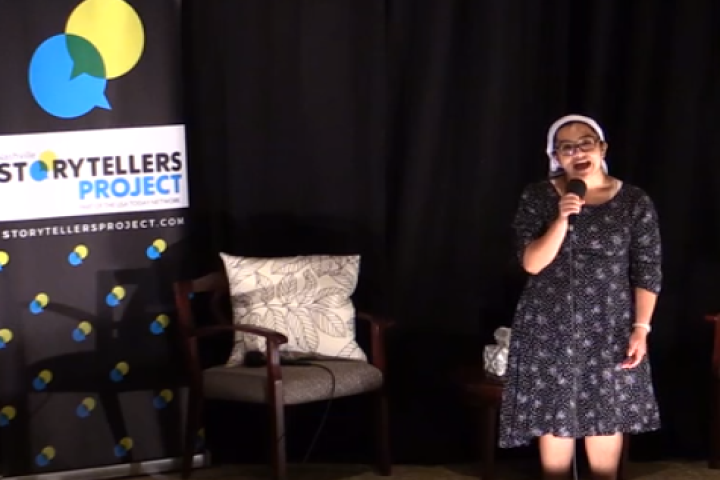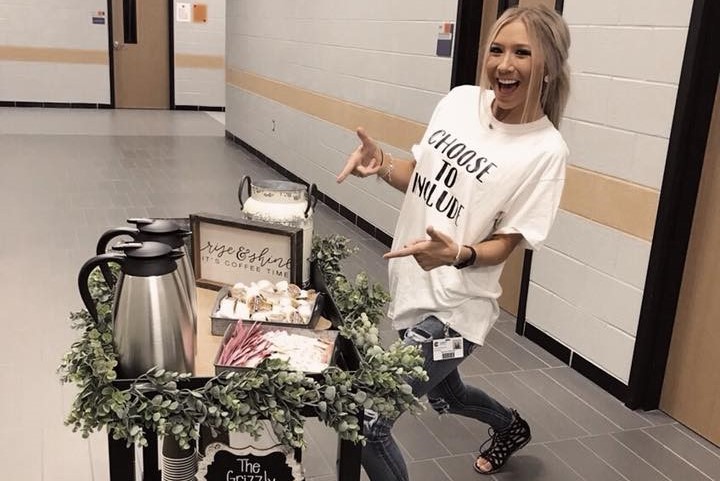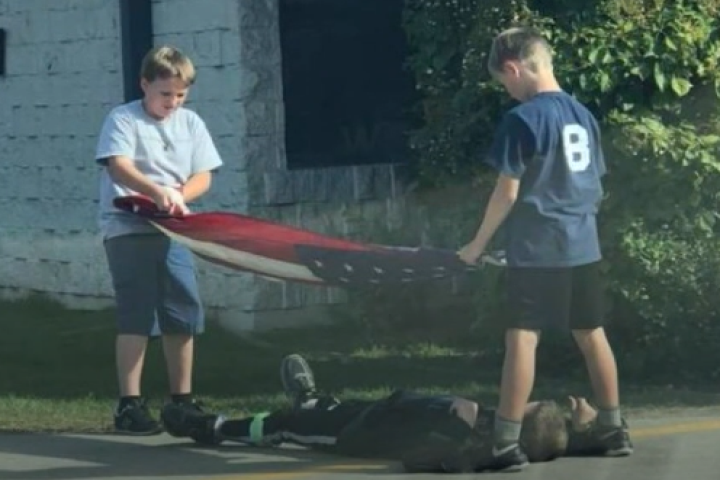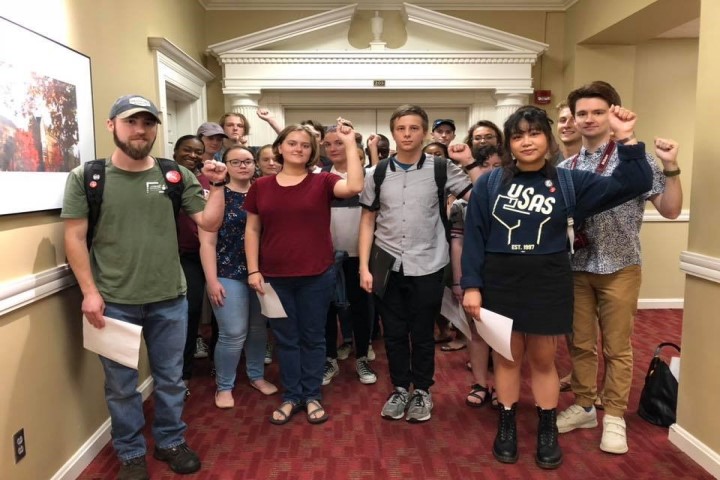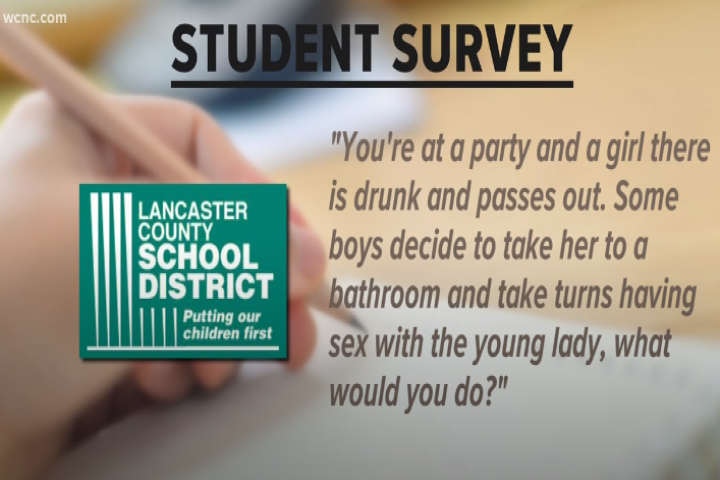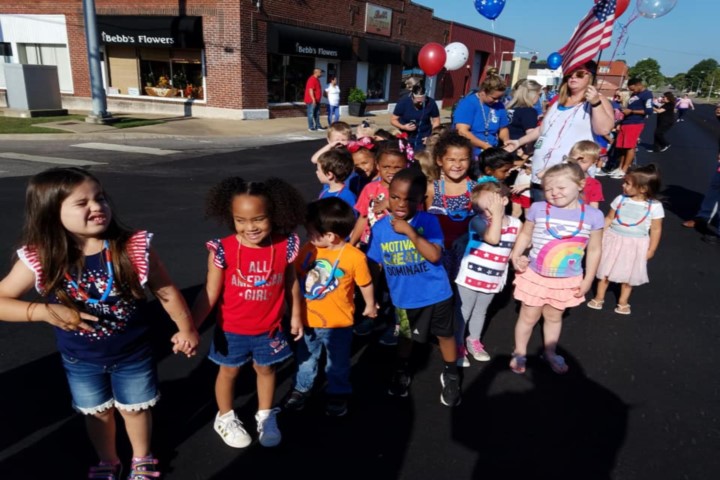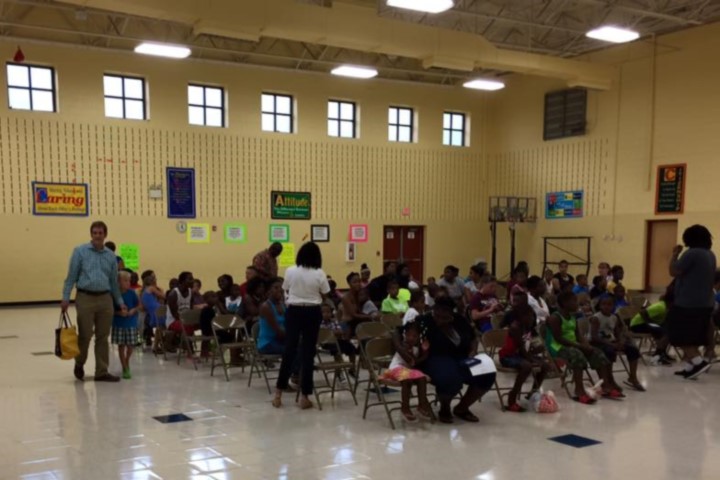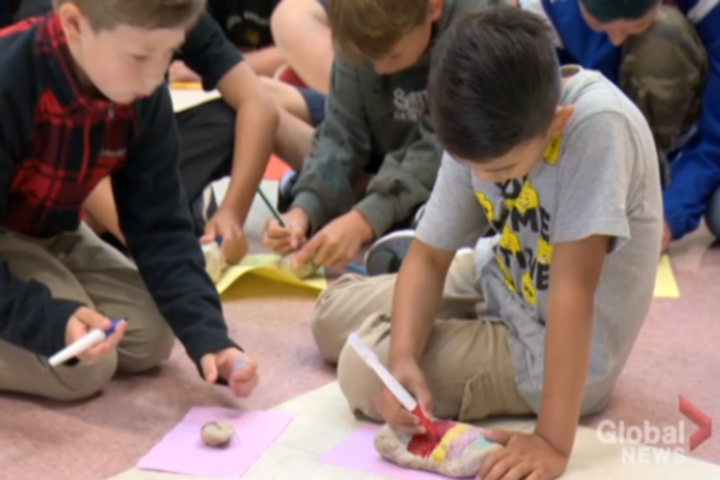Fourth graders in Pittsford, New York’s Thornell Road Elementary School are making some new friends in their community and chronicling their stories in a book about service and sacrifice.
Teacher Toni Stevens-Oliver’s class recently interviewed 23 veterans from the Rayson-Miller American Legion Post 899 to get an intimate understanding of why they joined the service and how it shaped their lives. The students then chronicled the stories in a new book called “Veteran’s Voices” – which also features an online app to view videos of the veterans in their own words, WHAM reports.
“The book was a way for us to connect one-on-one personally a student with a veteran and get to know each other through the veteran telling their story and the student writing that story,” Stevens-Oliver told the news site.
The veterans “were blown away by the interest the students showed, the respect the children showed,” she said. “We hope our book inspires people to ask their local veterans what their story is.”
Students told WHAM they learned a lot from the class project.
“Freedom isn’t free, and the veterans sacrificed a lot of things,” student James Kazacos said. “They sacrificed time with their family, holidays.”
“They are just like normal people, except that they step up and do a job that takes courage,” classmate Jake Schreyer added.
Al Herdkoltz, commander of the Rayson-Miller post, said the effort gives him hope the stories of local veterans will not be forgotten.
“They actually had an interest and they were my friends,” he said. “I felt very comfortable and at ease. I felt I had a new friendship even though there was quite a bit of age difference, they were my friends.”
Steven-Oliver shared the project on Shutterfly and posted supporting documents to her Pittsford Schools website as a template for teachers looking to pursue a similar project. The school page also features a special shout out from Sen. Rich Funke acknowledging students’ hard work.
“To take the time to not only interview our veterans, but to take those interviews and incorporate them into an interactive book was special, not just to them but to all of us who care about our veterans,” Funke said in a video message.
Researchers at the Institute of Advanced Studies in Culture stress the importance of developing a sense of responsibility for and ownership of something larger than students’ self-interests. In The Content of Their Character, researchers noted how rural schools are particularly strong at fostering connections to broader spheres of moral obligation through immigration, religion and the military.
“In addition to building greater knowledge of cultures and societies outside of the U.S.,” researchers wrote, great teachers “were aiming primarily to build social-perspective taking, empathy and general critical thinking skills.”
Much of the work centers on gratitude, and the Jubilee Centre for Character and Virtues offers a plethora of research on the subject, including the public’s perception of gratitude and links between the virtue and service.
“More recently, the Centre has extended its focus on gratitude by examining the effects of teaching interventions on comprehensions of gratitude and related virtues,” according to the website.
